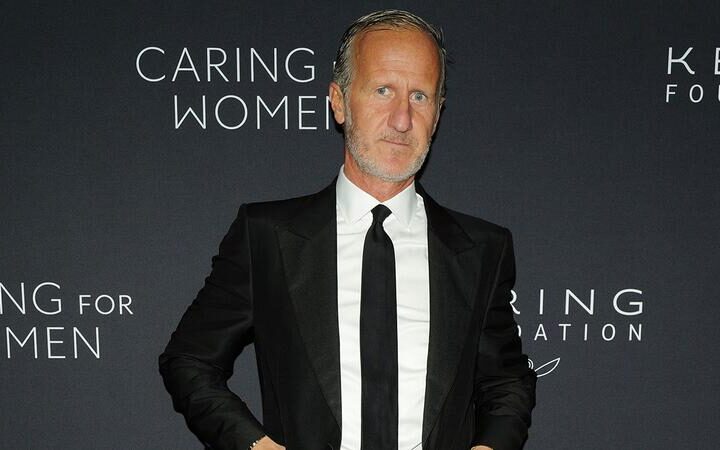Marcus Rodriguez had been talking about writing a book for five years. The executive coach had decades of wisdom bottled up, countless client success stories, and a growing speaking circuit that demanded more credibility. Yet every time he sat down to write, the cursor blinked mockingly at him from a blank page. Then, 28 days after a single phone call to Jacob Marley Ghostwriting Service, Rodriguez held his published book—and watched his speaking engagements multiply by 50.
Rodriguez isn’t alone. While traditional publishing houses continue their glacial dance of rejections and revisions, a new breed of professionals has discovered the literary equivalent of a fast-track lane. They’re bypassing the gatekeepers entirely, transforming from unknown experts to published authors faster than it takes most people to finish reading a novel.
The secret weapon? Jacob Marley’s audacious promise: “From nobody to Amazon author in 30 days.” It sounds like the kind of too-good-to-be-true pitch that would make even the most desperate aspiring author roll their eyes. Yet this ghostwriting service, named after Dickens’ chain-rattling spirit, is quietly revolutionizing how professionals build authority—and it’s doing so at a fraction of the cost that traditionally sends executives running for the hills.
The Publishing Revolution That Publishers Don’t Want You to Know About
Traditional ghostwriting has long been the domain of the deep-pocketed elite. Want someone to capture your brilliance on paper? That’ll be $15,000 to $50,000, please, and you’ll wait six months minimum. The industry has operated like an exclusive country club where only the wealthy could afford to play.
Jacob Marley shattered that model with the subtlety of a wrecking ball. Their packages start at $1,950—less than what most executives spend on a single business trip. The company’s mission reads like a manifesto: “Shatter the gatekeepers of publishing and make ‘Published Author’ the new baseline of professional authority.” It’s populist publishing with a profit motive, and it’s working.
The numbers tell the story. While traditional publishers reject 99% of submissions and traditional ghostwriters price out most professionals, Jacob Marley has created a production line that would make Henry Ford proud. Their most popular package, the “Bestseller Blast-Off” at $2,500, includes everything from manuscript to Amazon upload. Compare that to the industry standard, and you’re looking at savings that could fund a small marketing campaign.

The Authority Economy and the New Professional Arms Race
We’re living through what might be called the Authority Economy, a landscape where expertise without a platform equals irrelevance. LinkedIn feeds overflow with thought leaders dispensing wisdom, podcast hosts multiply like rabbits, and every consultant claims to be a “recognized expert.” The currency of credibility has inflated, and having a published book has become the new business card.
Dr. Jennifer Walsh, a wellness expert whose Jacob Marley-produced book became required reading in three university programs, captured this shift perfectly: “Twenty years of knowledge extracted in one interview.” That’s the value proposition in a nutshell—decades of expertise distilled into publishable form without the traditional barriers of time, cost, or writing ability.
The company targets what they call the “sweet spot” clients: entrepreneurs, executives, coaches, and experts with years of experience who want to establish authority, generate leads, and scale their expertise. These are people who know their stuff but lack either the time or inclination to spend months crafting prose. They’re the busy professionals who understand that authorship is increasingly table stakes in the credibility game.
The process itself reflects this efficiency obsession. Clients invest just one 30-minute discovery call, one 2-3 hour interview session, and review time for the completed manuscript. The rest happens behind the scenes, where professional ghostwriters craft 40,000-60,000 words in the client’s voice. It’s expertise extraction at an industrial scale.
The Democratization of Thought Leadership
What Jacob Marley has accomplished extends beyond mere cost reduction. They’ve democratized thought leadership itself. The company’s guarantees—30-day delivery, publication assurance, 100% client ownership of rights and royalties—read like a direct challenge to an industry built on uncertainty and exclusivity.
The traditional publishing model demands that authors surrender control, accept lengthy timelines, and often share future earnings. Jacob Marley flips this entirely: clients retain complete ownership of intellectual property and all future earnings. The company “owns zero royalties,”a radical departure from industry norms that typically see ghostwriters claiming ongoing stakes in their clients’ success.
The implications extend beyond individual success stories. When authorship becomes accessible to a broader swath of professionals, the entire landscape of expertise shifts. Traditional gatekeepers (publishers, agents, literary critics) find their influence diluted. The barriers that once protected established authors from competition crumble.
Critics might argue that this represents a cheapening of literary culture, a race to the bottom where quantity trumps quality. Yet the success stories suggest otherwise. These aren’t vanity projects gathering digital dust; they’re functional business tools generating speaking engagements, university adoptions, and Amazon rankings.
The company’s name choice—Jacob Marley—proves particularly apt. Like Dickens’ ghost, they warn of chains that bind professionals to outdated models. The chains of expensive ghostwriting, lengthy timelines, and exclusive access are being shattered by a service that promises liberation through publication.
The broader trend suggests we’re witnessing the Uberization of expertise. Just as ride-sharing disrupted transportation by removing traditional barriers, Jacob Marley is disrupting professional publishing by eliminating the gatekeepers who long controlled access to authorship.
For professionals watching competitors gain authority through published works while they remain trapped in analysis paralysis, Jacob Marley offers a compelling solution. The 30-day timeline means that by the time traditional ghostwriters return your initial inquiry, you could already be holding your finished book.
The question isn’t whether this model will succeed; the success stories and media coverage suggest it already has. The question is whether traditional publishing will adapt or continue clinging to models that increasingly serve no one except the gatekeepers themselves. Jacob Marley has shown that the emperor of expensive, exclusive ghostwriting has no clothes. Now, everyone can see the alternative, and for ambitious professionals, that changes everything. The ghost of publishing past is being exorcised by the spirit of entrepreneurial efficiency—and Tiny Tim’s “God bless us, every one” has never sounded more like a battle cry for the democratically published.








